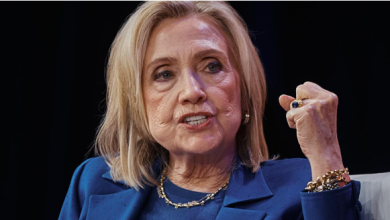Foreign
DR Congo: UNICEF to deliver 45,000 doses of Ebola vaccines

Nearly 45,000 doses of Ebola vaccine are on their way to Kasai province in the Democratic Republic of the Congo (DRC) as UNICEF intensifies efforts alongside its partners to protect children and families from the outbreak.
Since the outbreak was declared on September 5, 47 suspected and confirmed cases had been reported, with wenty-five people have already died – 12 of them children.
“Every dose delivered is one more step toward keeping children and families safe,” UNICEF Representative in the country, John Agbor, said in a statement on Wednesday.
He also noted that children also need medical care if they fall ill, along with support to cope with trauma and safe spaces to learn and play.
“The current hotspot is Bulape, with neighbouring areas of Mweka and Mushenge also at risk. More than 1,048 contacts have already been identified and are being monitored, UNICEF said.
Emergency aid is prepared for delivery to Kasaï province in response to the recently declared Ebola virus disease outbreak in DR Congo.
Teams are working around the clock in Kasai, together with the Ministry of Health, other UN agencies, and local partners.
Beyond vaccines, UNICEF is also supporting care for Ebola patients; reinforcing hygiene measures in schools, hospitals and child-friendly spaces, and making sure families receive life-saving information on how to protect themselves.
This is the 16th Ebola outbreak in DRC since the virus was first discovered in 1976. The last outbreak in the Kasai area was in 2008-2009.
In a related development, WHO reaffirmed safety of vaccines and paracetamol – also known as acetaminophen – during pregnancy, with autism spectrum disorder.
According to the UN health agency, there is no conclusive scientific evidence linking the use of paracetamol during pregnancy with autism spectrum disorder.
“Extensive research, including large-scale studies over the past decade, has found no consistent association,” the agency said in a statement, urging expectant mothers to follow the advice of their health providers.
The alarm was raised by the White House on Monday when U.S. President Donald Trump and senior health officials issued a new warning that acetaminophen – the active ingredient in the painkiller Tylenol – is linked to a rise in autism, along with announcing a new study on the potential causal effect of childhood vaccines.
WHO reminded that medicines should always be used with caution during pregnancy, particularly in the first trimester.
Autism affects nearly 62 million people worldwide, or about one in 127. The exact causes remain unclear, with multiple complex factors thought to be involved.
WHO also reiterated that vaccines do not cause autism, emphasising that “large, high-quality studies from many countries have all reached the same conclusion.”
The agency pointed out that the original research suggesting a link was flawed and had long been discredited.
Childhood immunisation programmes, guided by WHO and adopted by all countries, have saved at least, 154 million lives over the past 50 years. “Vaccines protect not just individual children but entire communities,” the agency noted.
Autism and other neurodevelopmental disorders will feature prominently at the UN high-level meeting on mental health and non-communicable diseases on Thursday.
NAN



